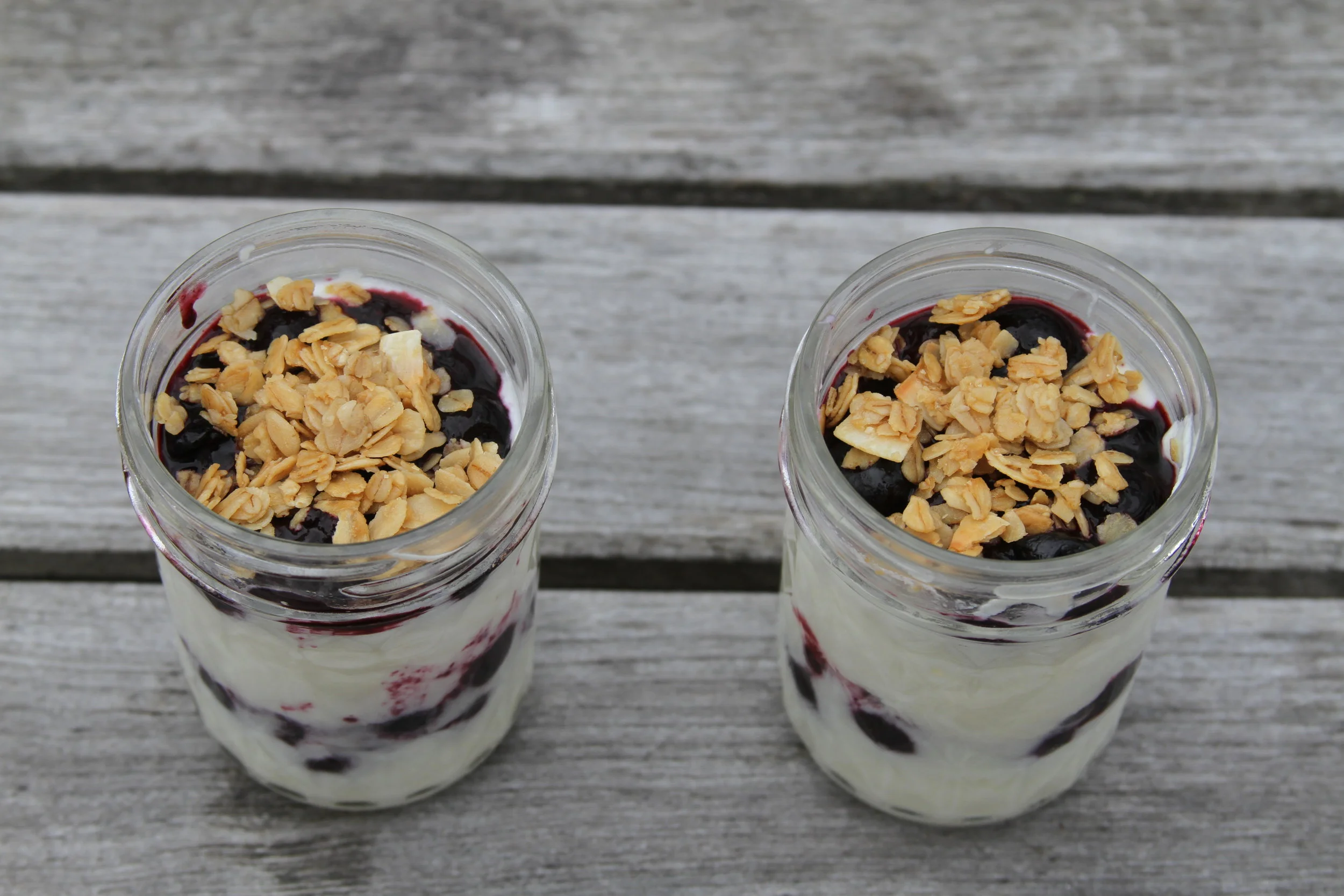a few thoughts on breakfast
Although we have been told that breakfast is the most important meal of the day, it also seems to be the hardest meal to prepare for most families. A 2013 study found that children who consistently eat breakfast have a “…superior nutritional profile than their breakfast-skipping peers." They also found that eating breakfast, “…may improve cognitive function related to memory, test grades, and school attendance” (source). We’ve all heard that “breakfast is the most important meal of the day,” and empirical evidence seems to support the view that breakfast has a positive impact on the wellness of our children, but what to eat seems to be an issue for most families - especially on busy mornings.
The easiest breakfast items to make (and what our kids want) are unfortunately the most unhealthy. Frozen waffles and pancakes, cereals, baking mixes, and breakfast bars are easy to prepare, however, they are usually highly processed with unhealthy flours and oils, added sugar, preservatives, and additives – even the organic ones. A recent study showed a strong link between processed foods and cancer (source). In addition, foods that are highly processed have a high glycemic index, which means the glucose in the carbs break down fast in the body giving a powerful surge in blood sugar. High glycemic foods are linked to type 2 diabetes, heart disease, obesity and other issues (source).
Cereal seems to be one of the most popular and easy breakfast items to prepare. However, it is not your healthiest choice as it is a highly processed food. In order to make those tasty shapely bites, cereal has to go through an extrusion process which effects the vitamins. Extrusion is a process where the grain is heated to high level for a determined period of time (depending on the type of grain used). The grain is melted and compressed so it fits through a die in order to puff and shape the grain (think puffed rice and O-shaped cereals). A study showed that while B vitamins were stable after the extrusion process, vitamin A, C, D, and E were unstable and had minimal retention after this process (source). Another recent study showed that if a child ate a bowl of cereal every day, they would consume more than 10 pounds of sugar in a year from their breakfast alone (source). Besides the fact that it is highly processed and has a high glycemic index, the sugar content and the added preservatives would be enough to make cereal a less-desirable breakfast option.
Many children (including my own) enjoy a bowl of cereal in the morning. I find that oatmeal is a good option - it fulfills that "cereal" craving, it has a low glycemic index, and is a delicious and easy breakfast to prepare. A 2005 study showed that, "...oatmeal may provide a slower and more sustained energy source and consequently result in cognitive enhancement," compared to a bowl of cereal (source). One impressive outcome of this study was that children, ages 6-8 who ate oatmeal in the morning, had better spacial memory and auditory attention. The researchers highlighted the fact that what children eat for breakfast affects our children's school performance.
However, oatmeal can also be highly processed. Instant oatmeal does not have much nutritional value and usually has lots of added sugar. Steal Cut Oats and rolled oats are among the most nutritious and least processed. We eat traditionally-prepared soaked and sprouted rolled oats. Soaking and sprouting is a traditional way of germinating grains, nuts, and seeds so that they are more easily digestable, and you can access all their nutrients (source). You can do it yourself, but I prefer to buy them soaked and sprouted to make my life easier.
Here are 3 healthy and easy breakfast ideas to help simplify your morning routine! I try to make the pancakes on a Sunday so I can freeze the leftovers.
SOAKED AND SPROUTED OATMEAL - add raisons, cinnamon, and a splash of maple syrup, and vanilla extract!


